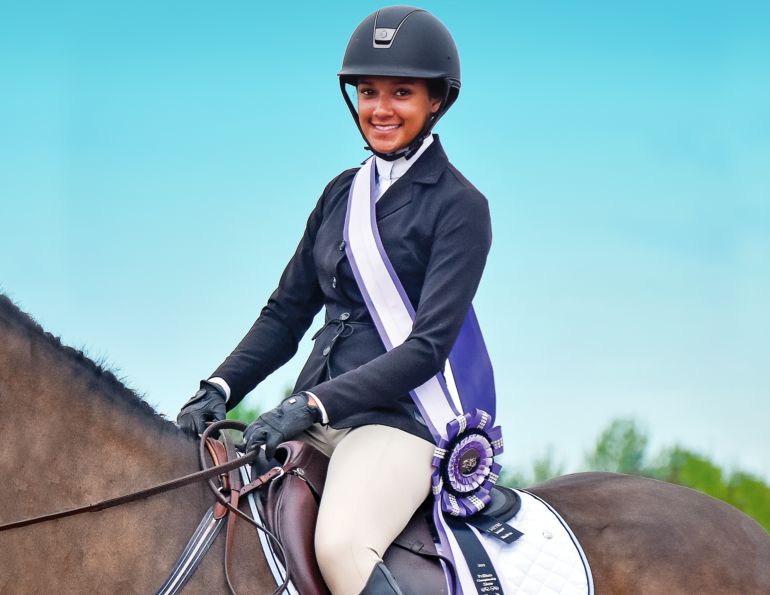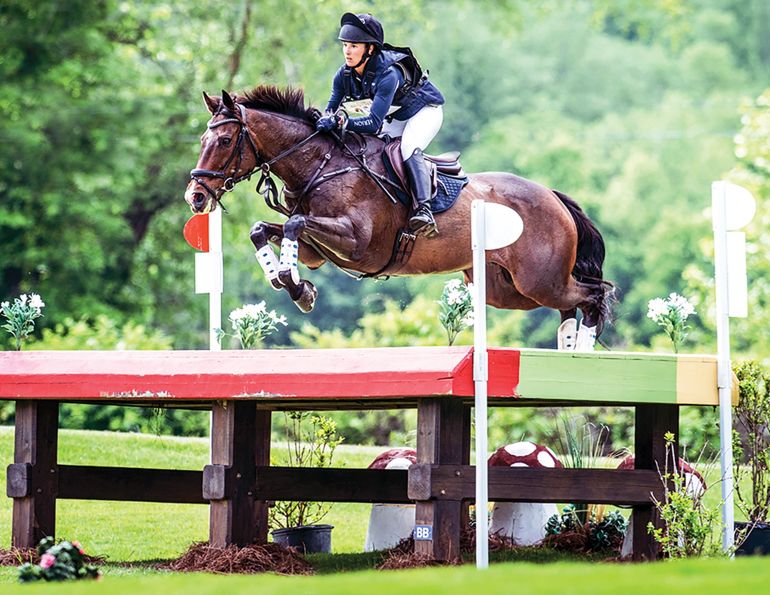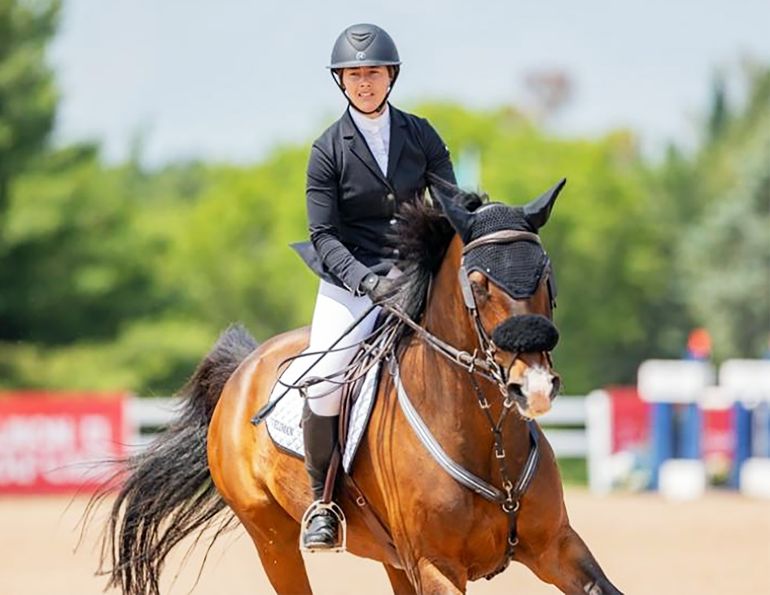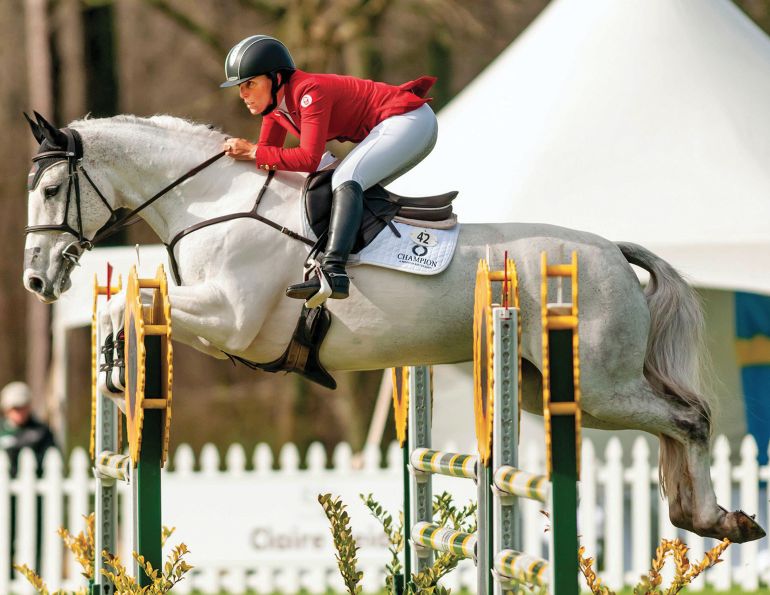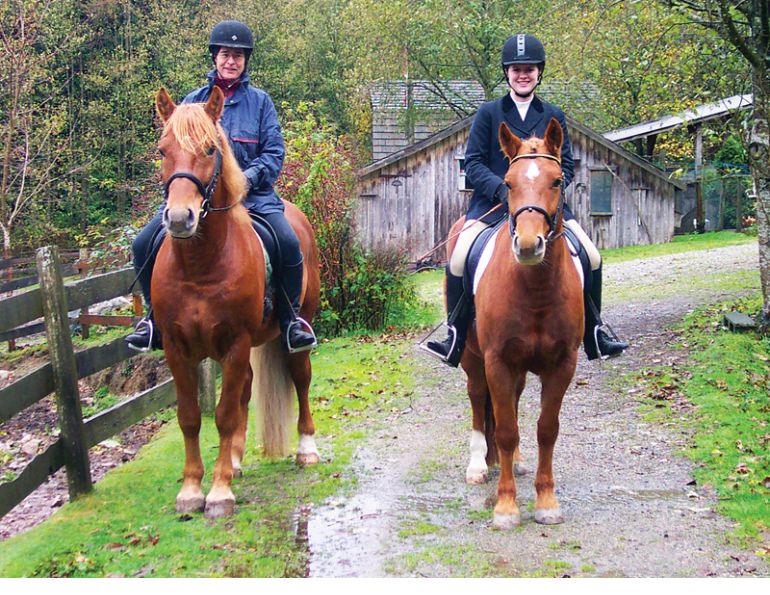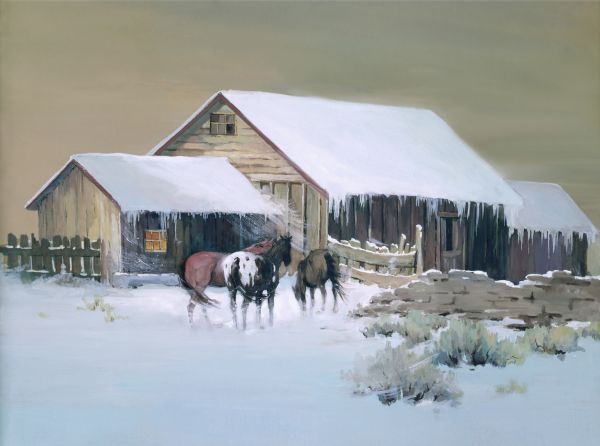By Margaret Evans
Born in Uxbridge, Ontario in 1983, Phoenix is a veteran Olympic, World Equestrian and Pan American Games competitor. She was named 2011 Equestrian of the Year by Equine Canada following a historic individual gold-medal finish at the 2011 Pan American Games in Mexico.
“Probably my most successful off-the-track Thoroughbred was Exponential,” she says. “I rode him at the World Equestrian Games in 2010 and the Summer Olympics in London in 2012. I’m trying to retire him because he’s 19 years old. But he’s such an incredible athlete that he prefers to be kept in some sort of work. He was seventh at Rolex at the Horse Fair in 2011 and he also went to Burghley (UK) and finished in the top 25.”
In his racing days at Woodbine and Fort Erie, Exponential was known as War Buckaroo (War Deputy x Misspent Bucks), a dark bay Ontario-bred colt born in 1997. He raced from 2000 to 2003 and Phoenix acquired him in 2005 when he was eight years old. At the 2010 World Equestrian Games, Phoenix and Exponential were members of the Canadian Eventing squad that claimed the team silver medal.
Related: Second Careers for Racehorses

Jessica Phoenix and Exponential at the Jersey Fresh Three-Day Event in 2013. Now 19 years old, Exponential is due to retire but Phoenix describes him as an incredible athlete who wants to keep on working. Photo: Shannon Brinkman Photography
Getting an ex-racehorse to an elite level of eventing starts, like all things, with the basics.
“The biggest thing is getting them interested enough in the dressage phase,” she says. “They are so fit when they come off of the track and they have such an excellent base of conditioning. [But] you have to retrain the muscle and retrain the mind so that they can handle the dressage phase. They need to refocus.”
Overall, Phoenix has found that the Thoroughbreds she has acquired from the track are very good on the ground. She says they have had so much handling and so much experience with vets that they are often better behaved than the warmbloods. They have had shoes on all around since they were two years old and have seen a lot of vets and farriers on the track.
“They have seen so much by the time we get them as four–year-olds that they are actually fun to work with because they have had life experiences,” she says. “The biggest difference is that, because they are four, they are fairly fit and you have to do a lot to engage their mind. You have to keep it exciting for them and not let them get bored mentally. You need to make training fun so they start to look forward to it. We do a lot of ground work with them and a lot of the natural horsemanship seems to work very well with the Thoroughbred. They are all different. Some of them we start by jumping on their back and some we start on the end of a line.”
Related: The Unsung Heroes of High Performance Horse Riders

Exploring, purchased as a four-year-old off the track, was the first horse Phoenix rode on a national team. Photo: Shannon Brinkman Photography
Bright, smart, and sensitive, young Thoroughbreds come along quickly when their minds are engaged, when the work is fun, and when each lesson is a new but attainable challenge. In the natural progression, they begin to bond with their new owner and start looking for the next activity.
Coming from an oval racetrack, the world of eventing is very different and challenging for Thoroughbreds. But many of them thrive on the unique levels of focus, and that variability draws out the exact qualities of the breed that make them so adaptable to the sport. On dressage day, a horse must be quiet and precise. On cross country day, the horse must be fit enough to gallop for 12 minutes straight and be bold over solid fences. Then on the third day, he must be careful and nimble enough to successfully complete the show jumping phase.
Some horses Phoenix has acquired straight from the track have gone to their first show just two weeks later. She credits that to their level-headedness and the fact that they are so easy to work around. But then others have taken six months.
There is no doubt that Thoroughbreds have been central to her life and career.
“I think I have to dedicate my career to off-the-track Thoroughbreds because that’s really how I got my start. The first horse that I rode on a national team was Exploring. I got him as a four-year-old off the track and I took him to the Pan American Games in 2007. He made the Olympic team in 2008. Then Exponential came on and I took him to the next World championship in 2010, and then the Olympic Games in 2012. I wouldn’t have had a start in this industry without having the opportunity to compete on them and take them to the highest level.”
In an article for Equine Guelph written by Barbara Sheridan (Second Careers for Racehorses: The Transition from Racetrack to Ribbons), Phoenix says she would not have been able to get a start in eventing if it hadn’t been for Exploring and Exponential. Both horses were inexpensive to purchase and, as their training for a new career unfolded, they both proved to be extremely talented.
“Starting out,” she told Sheridan, “I certainly wasn’t in a position where I could purchase a really expensive horse so, honestly, without having been able to start with Thoroughbreds I probably wouldn’t be where I am today.”
The goal now, of course, is to be selected for the team to compete at the Summer Olympics in Brazil in 2016.
We have five horses competing at the CCI3* level right now. We’re just starting the process of qualifying them and hope to have them all qualified by the end of the year.”
The year thus far has already had huge highs and lows. In May, she was injured in a serious fall when competing at the Jersey Fresh International Three Day Event. Her 11-year-old Thoroughbred, Exultation, collided with a fence on cross country and Phoenix was thrown, suffering not only broken bones but reportedly damage to her liver. Her mount was unhurt.
Phoenix made a full recovery and was fit enough to ride on the Canadian Eventing Team in the Pan-American Games in Toronto in July where she won the individual silver medal and helped her teammates capture the bronze medal.
Related: Legendary Jockey Ron Turcotte
Related: At the Starting Gate of a New Direction
Main photo: Phoenix’s most successful off-the-track Thoroughbred was Exponential, her mount at the 2010 World Equestrian Games and the 2012 Olympic Games. Photo: Shannon Brinkman Photography






